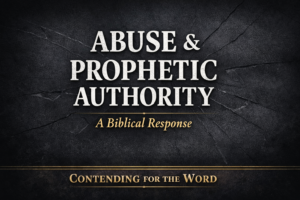⏱️ Estimated Reading Time: 8 min read
Warming Ourselves at the Fire: Biblical Meditation
An open fire is a wonderful luxury in a cooler climate. There is little as enjoyable as a brisk walk in a fresh, crisp frost followed by lingering near an open fire to warm up. This is the image that the Puritan Thomas Watson employs to illustrate biblical meditation—lingering over Scripture to prevent our faith from suffering from spiritual frost—warming ourselves at the fire of biblical meditation.
Meditating in Scripture
The first occurrence of meditation in Scripture is Genesis 24:63. Admittedly, this is a somewhat enigmatic reference to meditating. Isaac goes out to a field to meditate, and, as he does, he is interrupted by the arrival of Rebekah (who will later become his wife). What exactly he is meditating on is not explicit in the passage, nor are the results of the meditation. Even so, the author of Genesis thought it important enough to tell his readers why Isaac was in the field—the fact that Isaac was meditating was deemed worthy of recording.
The second instance of meditation in Scripture is in a more significant setting: Joshua 1:8. The book of Joshua records a momentous period in Redemptive History. Joshua is succeeding Moses; the Promised Land is replacing the Wilderness; God’s promises, first made to Abraham, are now being fulfilled. Yet, the instruction at the beginning of this book is: “This Book of the Law shall not depart from your mouth, but you shall meditate on it day and night, so that you may be careful to do according to all that is written in it.” This is biblical meditation. Note three elements: 1) The object of meditation is the Book of the Law (Scripture—perhaps the Pentateuch). 2) The meditation is to be ongoing (day and night), and 3) The goal of meditation is obedience to what is found in Scripture.
The main comment in Scripture on meditation is found in the Psalms, however. We see it mentioned in the very first Psalm (Psa. 1:2). This psalm sits at the beginning of a book—all of the individual poems of the Psalter constitute one book with one message (see my Seeing Christ in the Shape of the Psalms). The instruction that we are given at the beginning is to meditate. Note the striking similarity between Joshua 1:8 and Psalm 1:2. This meditation is then fleshed out in the mammoth Psalm 119, which is consumed with God’s Word. There are eight separate words used to speak about the Bible in Psalm 119: Law, Testimonies, Precepts, Statutes, Commandments, Ordinances, Word, and Promises. Repeatedly, the author of Psalm 119 tells us that he meditates on God’s Word (Psa. 119:15, 23, 27, 48, 78, 97, 99, 148). This practice, it seems, was important in fostering the Psalmist’s delight in God’s Word.
Psalm 119 does not merely give evidence meditation is biblical, but it also begins to define meditation for us. In verse 15, we have a feature of Hebrew poetry called parallelism. The same truth is stated twice, with the second line clarifying or developing the first. So, to meditate on God’s precepts is to fix our eyes on God’s way. In verse 27, understanding the way of God’s precepts is found in meditating on His wondrous works. In verse 97, loving God’s law meditates on it all day.
Meditation is biblical, but can we define it more precisely? I think we can.
Meditating as a Christian
It has been suggested that meditation is the most misunderstood and underrated discipline in the Christian life. Thankfully people like David Mathis, in his incredibly practical book Habits of Grace, have written about the excellent treatments of meditation. Mathis (Habits of Grace, p. 55) begins to define meditation by quoting Donald Whitney, who argues that it is, “deep thinking on the truths and spiritual realities revealed in Scripture for the purposes of understanding, application, and prayer.” I think this definition is good. It has the same object as Joshua 1:8 and the Psalms: Scripture. It also has the same goal, although stated in a different way: obedience to Scripture.
Biblical meditation, then, is not an emptying of our minds, rather it is, “filling them with biblical and theological substance—truth outside of ourselves—and then chewing on that content, until we begin to feel some of that magnitude in our hearts” (Mathis, Habits of Grace, p. 56). Christian meditation is putting God’s Word in, so we can turn it over and over in our minds and emotions, before having it influence our lives.
David Mathis continues:
In meditation, we pause and reflect over his words, which we have read, heard, or studied. We roll them over in our minds and let them ignite our hearts…We go deep in God’s revelation, take it into our very souls, and as we are being changed by his truth, we respond to him in prayer. (p. 59)
Mathis hasn’t made all of this up. The Hebrew words translated as ‘meditate’ in our English translations possess this meaning when used in contexts other than Scripture. There are two Hebrew words used (שׁיח, הגה), and they have connotations of deep reflection, repetitive consideration, and filling our thoughts with God—both his deeds and words. This filling is an inward action and results in the goal of firmer adherence to that meditated upon.
This is what we “do” in Christian meditation: we read, hear or study God’s Word and then think about it, consider it, dwell on it, apply it, and question it. The result should be worship: prayer, obedience, gratitude, and love.
My favorite Puritan is a largely unknown man named Thomas Watson. He this has to say about biblical meditation, “The reason we come away so cold from reading the word is, because we do not warm ourselves at the fire of meditation” (Quoted in Mathis, Habits of Grace, p. 58).
This is all very well, but how exactly do we do it? How do we warm ourselves at the fire of meditation?
Meditating on the Bible
I want to offer four things we can do that may help us develop a practice of meditation.
First, repeat the verse or phrase with a different emphasis on every word. Take John 2:5, for example. Jesus’s mother, Mary, instructs those at the wedding in Cana to listen to her son, Jesus. She says: “Do whatever he tells you.” “Do whatever he tells you” (action is required). “Do whatever he tells you” (it is all-encompassing). “Do whatever he tells you” (who is this? Jesus). “Do whatever he tells you” (the command is communicated). “Do whatever he tells you” (it is personal, it is directed to you).
Second, ask the Philippians 4:8 question. This is Donald Whitney’s suggestion. He encourages readers to ask these eight questions of any passage, verse, or phrase, based on Philippians 4:8. What is true about this, or what truth does it exemplify? What is honorable about this? What is right about this? What is pure about this, or how does it exemplify purity? What is lovely about this? What is admirable, commendable, or reputation-strengthening about this? What is excellent about this (except for others of this kind)? What is praiseworthy about this?
Third, rewrite the verse in your own words. Trying to capture the concepts, themes, and truths of the Bible in your words will aid the depth of your thinking on Scripture.
Fourth, set yourself a goal of writing down two insights or three applications from a particular passage, verse, or phrase. Do not stop each time you read your Bible until you have noted down those insights or applications.
I do a mixture of these last two points. After reading David Mathis on the art of Bible reading a number of years ago, I was challenged to begin dwelling on my Bible readings. Every day I now post on social media a brief comment on my daily readings—an application, a truth, or a picture of the gospel from my readings. This has helped me to be more thoughtful in my personal reading and forced me to read more carefully. Why not join me with #DailyReadings?
Conclusion
Mathis (Habits of Grace, p. 59) concludes, “Christian meditation is less about the posture of our bodies and more about the posture of our souls.” That is, the act and art of meditation is our soul’s submission to God’s Word for our good and his glory. This kind of meditation is warming ourselves at the fire of Scripture.



